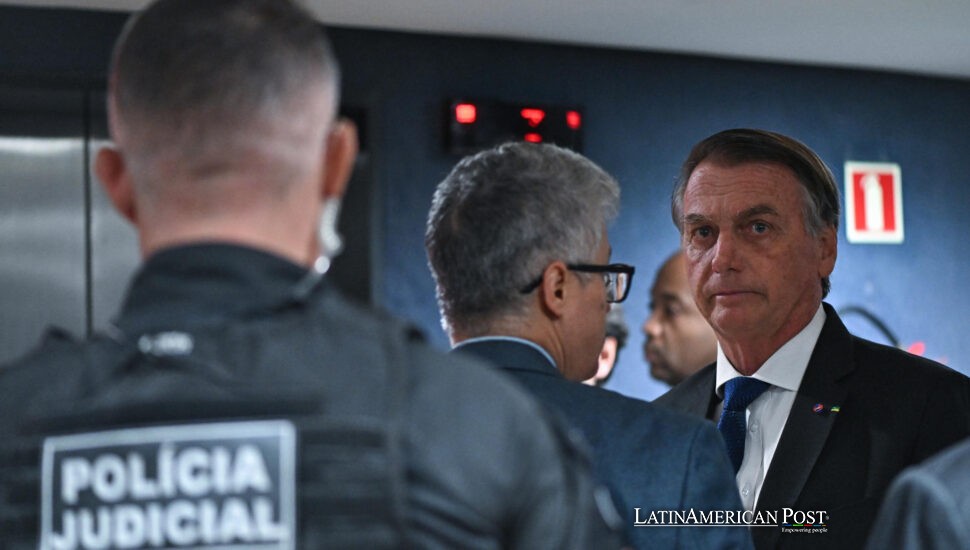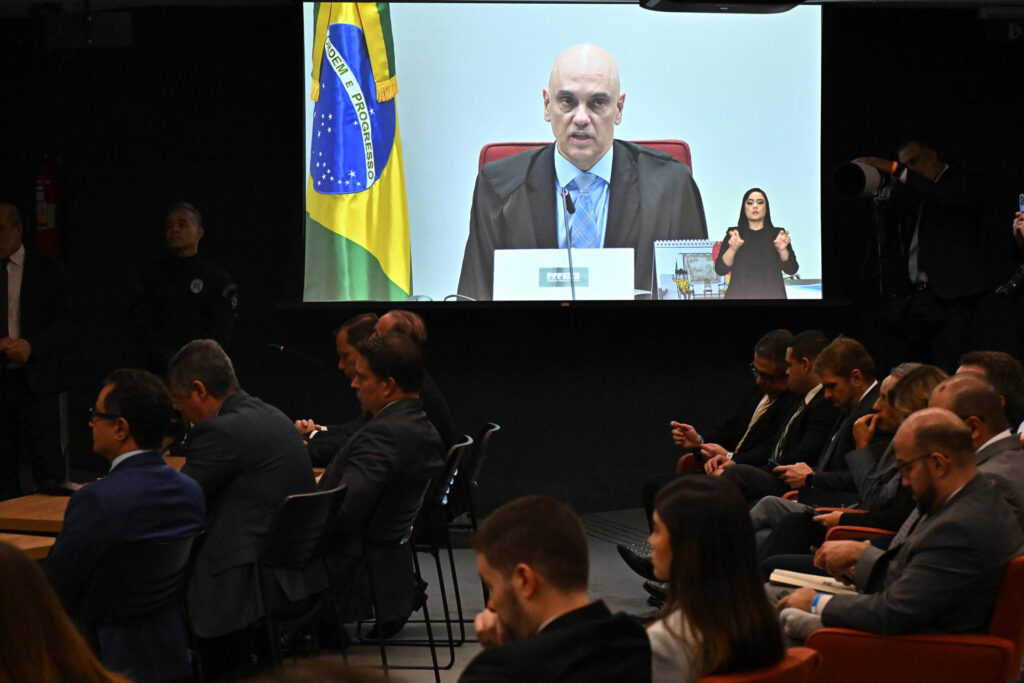Inside Brazil’s High-Stakes Trial Over Bolsonaro Election Conspiracy

A small courtroom in Brasília now holds the fate of Brazil’s most polarizing ex-president. Jair Bolsonaro and seven former aides stand accused of plotting a self-coup after losing the 2022 election, a trial that could redefine Latin America’s largest democracy.
A Hearing Room Turned to National Theatre
On a humid Monday morning in June, reporters queued before dawn outside Brazil’s Supreme Federal Court, hoping for a bench-side view of the drama that would soon unfold. Gold trim and marble columns lent the chamber grandeur, but the air felt charged. At 10 A.M., Justice Alexandre de Moraes strode in, flanked by clerks carrying stacks of classified memos, draft decrees, and WhatsApp transcripts. Moments later, Mauro Cid—once Jair Bolsonaro’s impeccably uniformed aide-de-camp—took the witness seat, his posture a mix of military stiffness and evident dread.
Cid became the first defendant to testify in what prosecutors describe as the gravest assault on Brazil’s institutions since the dictatorship collapsed in 1985. His audience included eight black-robed justices, federal investigators, a half-dozen defense lawyers, and, seated silently three rows back, the former president himself. Outside, rival crowds waved “SOS Armed Forces” banners or handmade placards reading “A democracia vence” —democracy wins. Every grimace, every note scribbled by Moraes was broadcast live, turning the due process into appointment television for a nation still stunned by the January 8, 2023, riot that left Congress, the high court, and the presidential palace in shards of broken glass.
Inside The Post-Election War Room
Over four hours of questioning, Cid described the Planalto Palace in the weeks after Luiz Inácio Lula da Silva squeezed past Bolsonaro at the polls: a warren of offices where data analysts pored over voting-machine logs, lawyers drafted emergency decrees, and generals huddled around PowerPoint slides mapping out “routes to constitutional intervention.” The plan, Cid said, rested on a single pillar—prove (or invent) digital fraud, then persuade the Armed Forces that only a state of siege could save the republic.
“The great hope,” Cid told the bench, “was to find a glitch that could be sold as proof. With that, we believed the military might move.” He recalled Bolsonaro asking aides to “tone down openly dictatorial language” in one draft decree while leaving intact clauses that would authorize the arrest of Justice Moraes. When Moraes, stone-faced, asked whether the president personally handled the edits, Cid answered yes. The former captain in the gallery swallowed hard; his supporters online called the aide a Judas.
The testimony painted a portrait of a leader oscillating between bunker-like isolation and bursts of aggressive planning. According to Cid, Navy commander Admiral Almir Garnier signaled a willingness to enforce a nullification order. Army Chief General Freire Gomes and Air Force boss Lt. Brigadier Baptista Junior refused. Even within Bolsonaro’s inner circle, talk of hauling justices from their homes at dawn provoked what Cid called “panic over international backlash.” Yet the drafts kept circulating: one titled “Re-Establishing Electoral Integrity,” another simply “D-Day.”

Draft Decrees, Assassin Whispers, And the Line That Held
While Cid dismissed some chatter as “bar talk,” he confirmed rumors of a colonels’ letter urging the Army to usurp the electoral court. He denied involvement in the more chilling “Green-and-Yellow Dagger” plot, which prosecutors say envisioned simultaneous hits on Lula and Moraes before inauguration day. Whether mere bravado or tangible conspiracy, the strands illustrate how close Brazil drifted to its January 6 moment.
Why did the scheme stall? Historians point to the split among top officers: without unified brass, no decree could muster the workforce to seize ballot servers or TV stations. Leaks to the press further eroded nerve; public opinion polls showed a majority accepted Lula’s victory. “The antibodies of 1988’s Constitution fought back,” political scientist Beatriz Rey told GloboNews. Yet Cid’s testimony reveals how few dominoes needed to topple for the antibodies to fail.
Though the villains of past coups wore uniforms, today’s plot blended epaulets with influencers, Telegram channels, and data-mining consultants. It was, in Moraes’s phrase, “a hybrid assault—half paperwork, half push notification.” That hybridity places Brazil at the cutting edge of modern threats to democracy, a warning as relevant to Washington or Warsaw as to Brasília.
Bolsonaro’s Reckoning and Brazil’s Gamble
The court will grill Bolsonaro last. He may invoke his right to silence or unleash one of the fiery monologues that fueled his rise. Whatever his posture, he already faces a separate eight-year ban from elective office for stoking fake fraud claims; criminal conviction here could add decades in prison, leaving the far-right leader’s 25 million voters to hunt a new banner carrier.
Brazil, meanwhile, confronts brutal math: punish the offenders hard enough to deter the next adventurer but not so hard as to martyr them into folklore. Lula’s coalition trusts the judiciary but fears street unrest if sentences appear draconian. Police intelligence units have drawn red circles on social media maps, watching chats that once organized highway blockades morph into plans for “patriotic caravans” converging on the capital when the verdict drops.
Legal scholars warn that Moraes must craft an opinion as bulletproof as the riot shields outside the court—one misstep could give appeal grounds to defense lawyers already crying political witch-hunt, and letting even a retired general skate could embolden fresh saber-rattling ahead of municipal elections next year.
For ordinary Brazilians, the trial is both exhausting and essential. Nurses on São Paulo’s night shifts stream the hearings on phones; Uber drivers debate whether the Armed Forces are heroes or mercenaries; favela activists remind radio hosts that political killings never ceased in the Amazon or the Northeast hinterland. Democracy here has always been noisy, improvised, and under construction.
Also Read: Colombia Holds Its Breath as Politics Meets Bullets Once More
That construction now hinges on a judge’s g avel and a colonel’s confession. If Brazil emerges with institutions intact and a president—any president—unable to bend troops to personal will, the country will have passed its sternest test since 1964. If not, the crackle that greeted Petro in Beijing could echo in Brasília: a storm gathering, ready to sweep away certainties once thought unshakeable.





